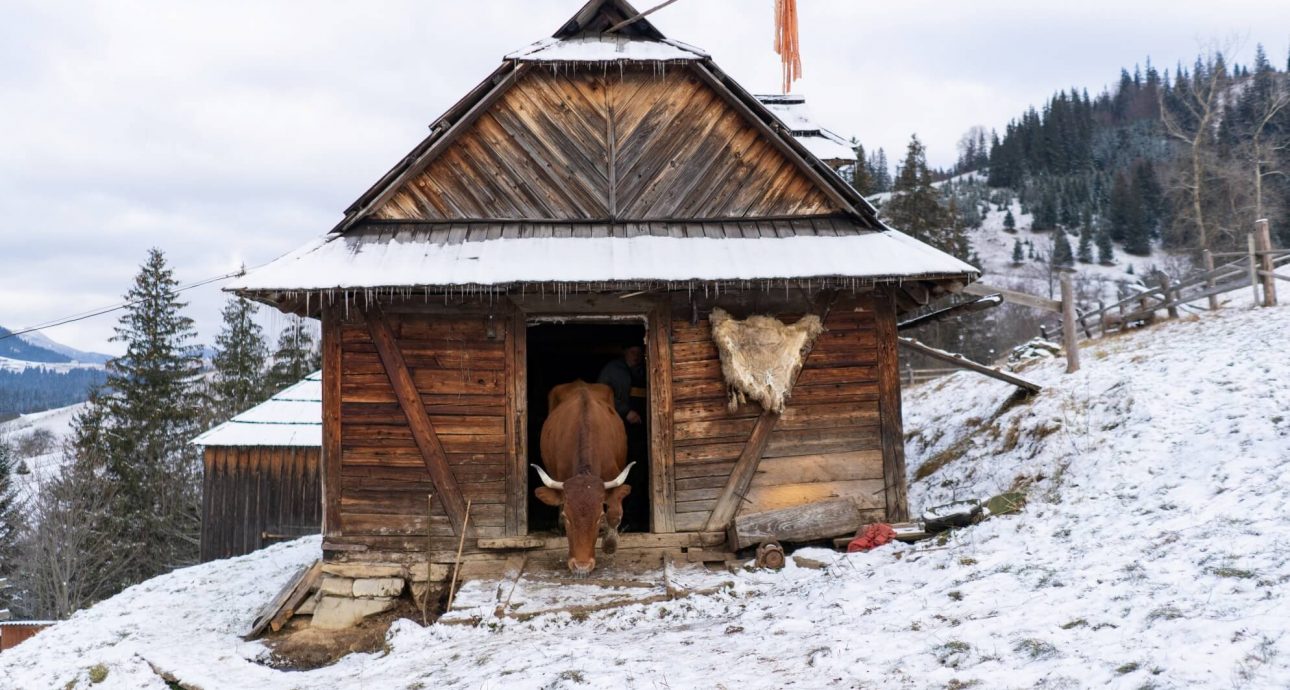
Fading Nature: Project about Ukrainian Khatas
In the cinematographers’ slang, the term “fading nature” refers to a landscape that will soon change and needs to be captured as quickly as possible. In their project Time Suburbs, who photograph representatives of dying professions, they document the stories of the house owners that exist beyond time.

Independent journalist, reporter. She has written for The Reporters and "Zaborona." Author of the book "Crescent, Cross, and Peacock. Journeys to Mesopotamia."

Freelance photographer who has collaborated with "Radio Svoboda," "Hromadske," "Nastoyaschee vremya," The Ukrainians & Reporters, LB.ua, and Open Democracy.
— Over the course of a year, we have photographed over a hundred houses. Previously, we would share the photos on Instagram without thinking of making something more out of it, but now we’ve decided to publish a book.
We typically allocate three days for each expedition. It’s great if we have a guide to help us enter the house, but that rarely happens. Most of the time, we simply approach the house that interests us and shout out “Good day!” — and the door opens for us. Each house can turn out to be interesting; the key is to get inside.
Obtaining information about the house isn’t always easy. The homeowners find it easier to talk about themselves, their daily life, and their neighbors. To learn something about the house, sometimes it takes several meetings. But we don’t interrupt and allow people to speak their minds. It would be rude and wrong to demand only the story we’re interested in.
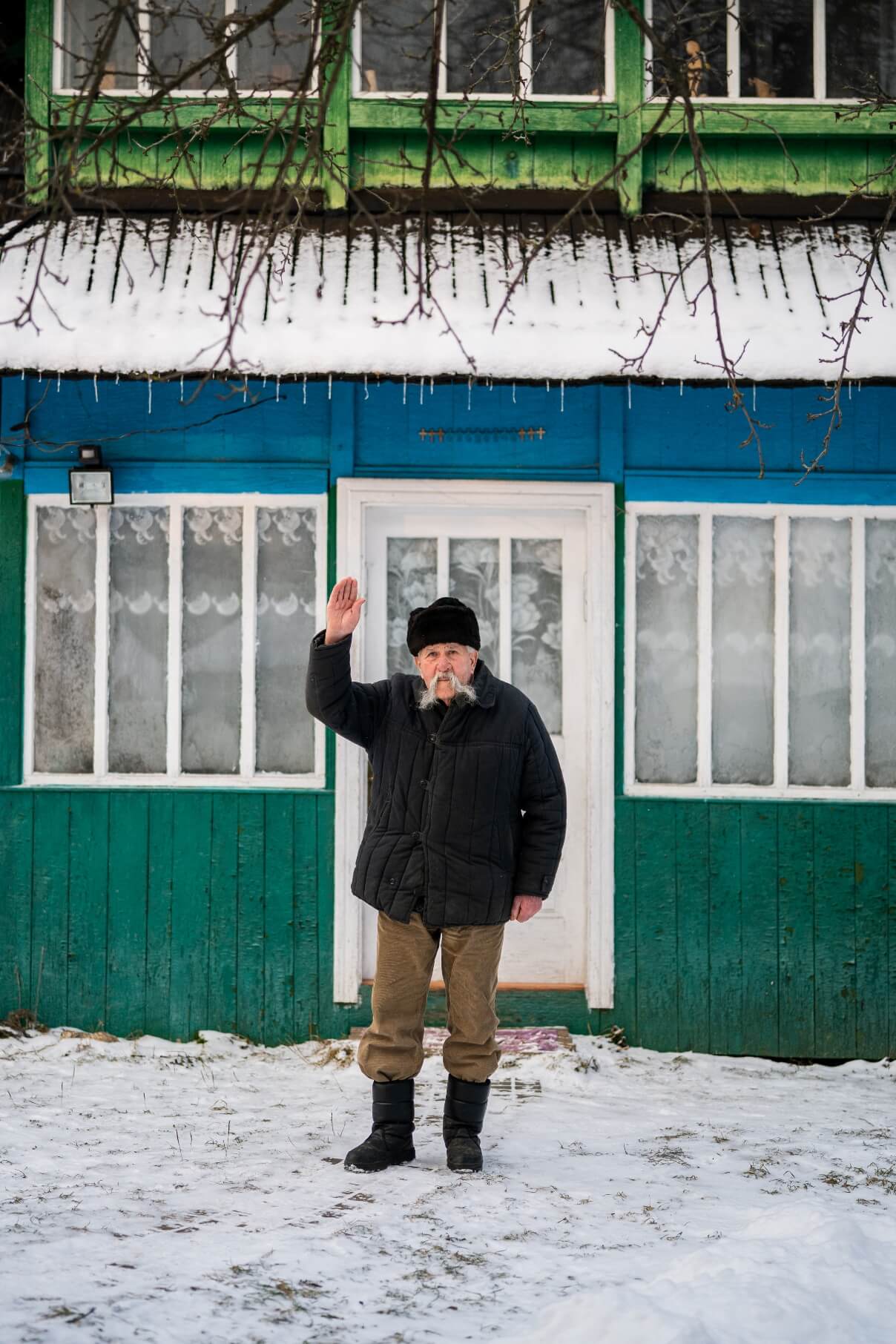
Mykhailo Yusypchuk-Didishyn, village of Kosmach, Ivano-Frankivsk region
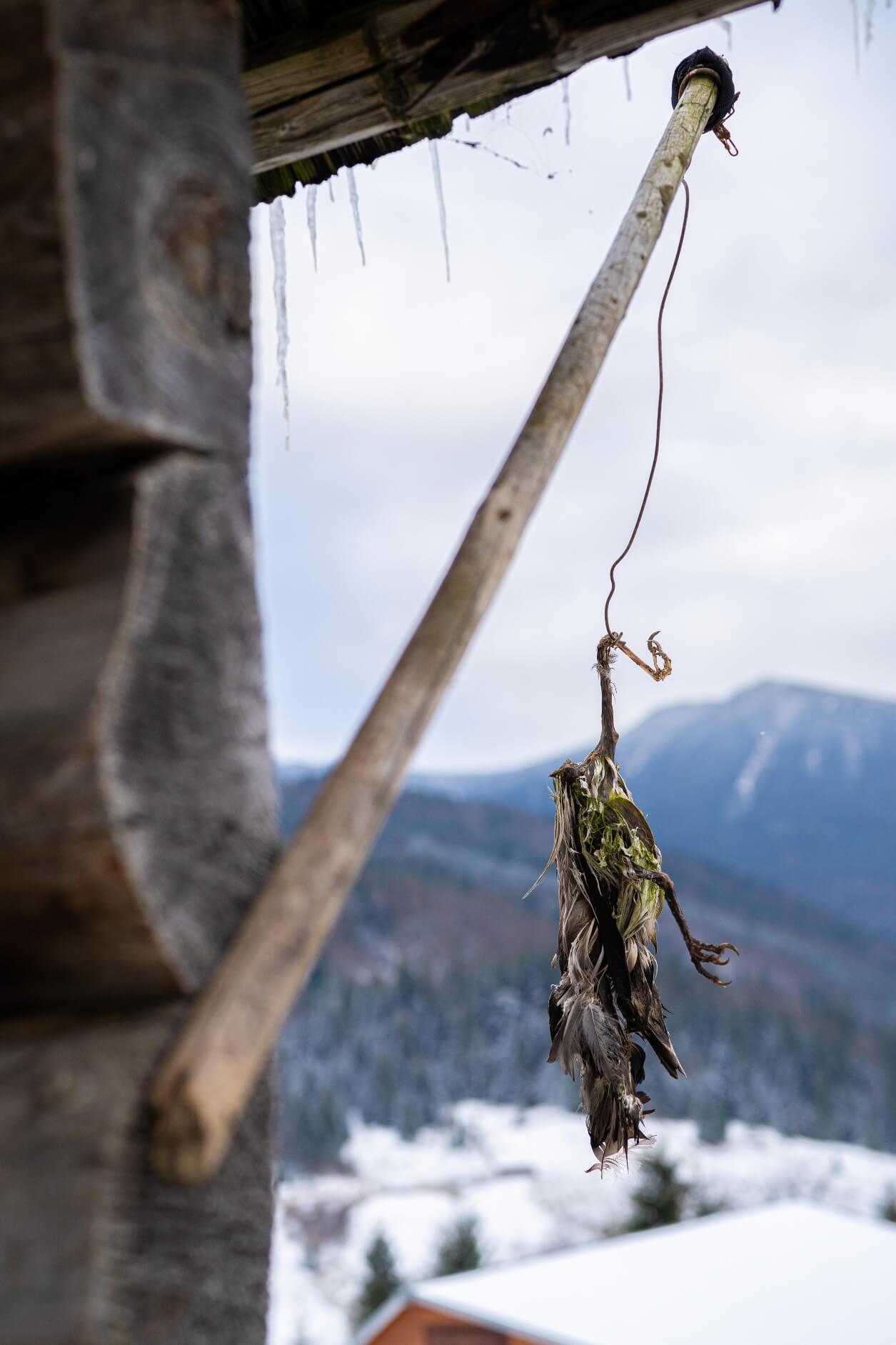
Village of Verkhnia Dzembronia, Ivano-Frankivsk region.
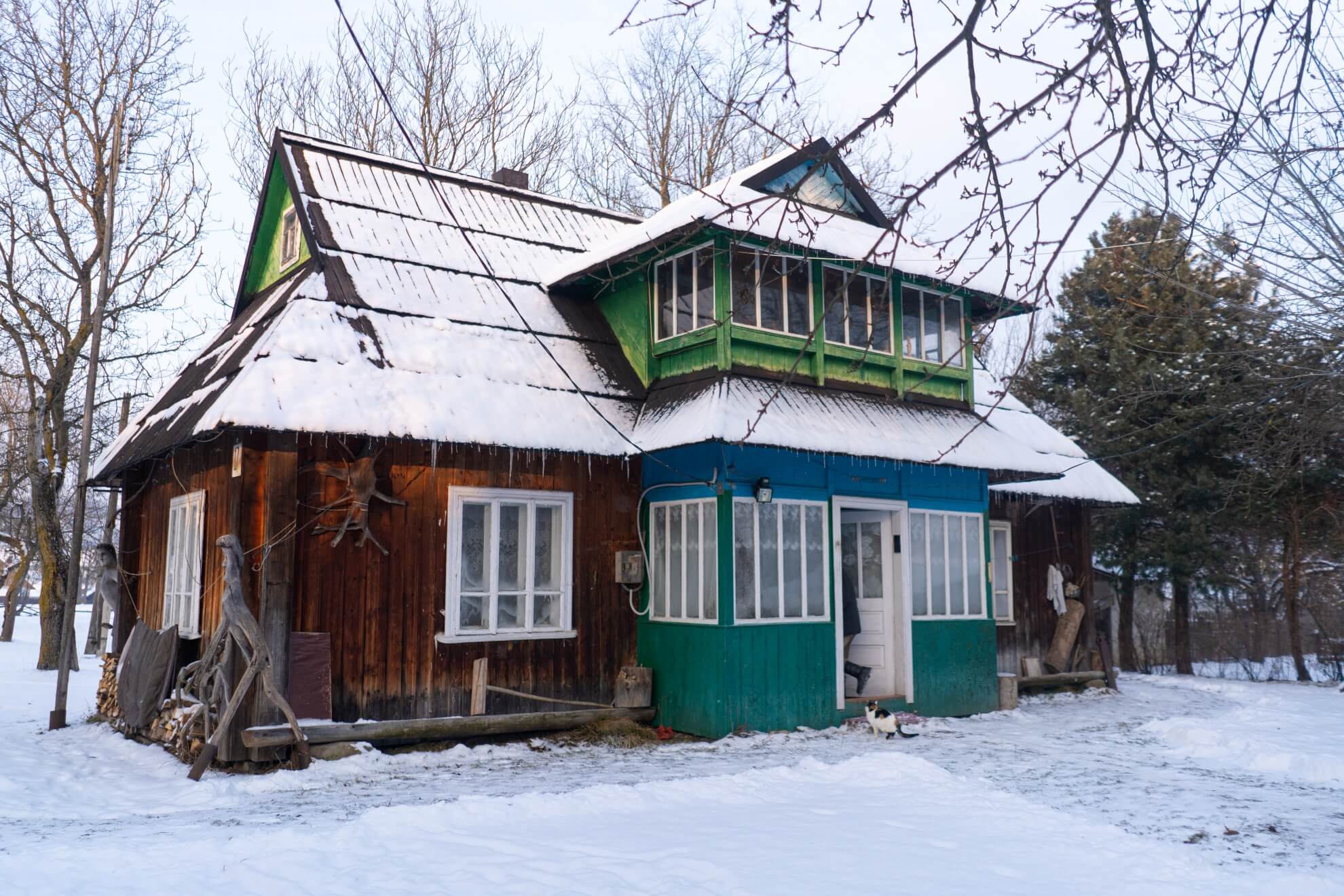
Village of Kosmach, Ivano-Frankivsk region
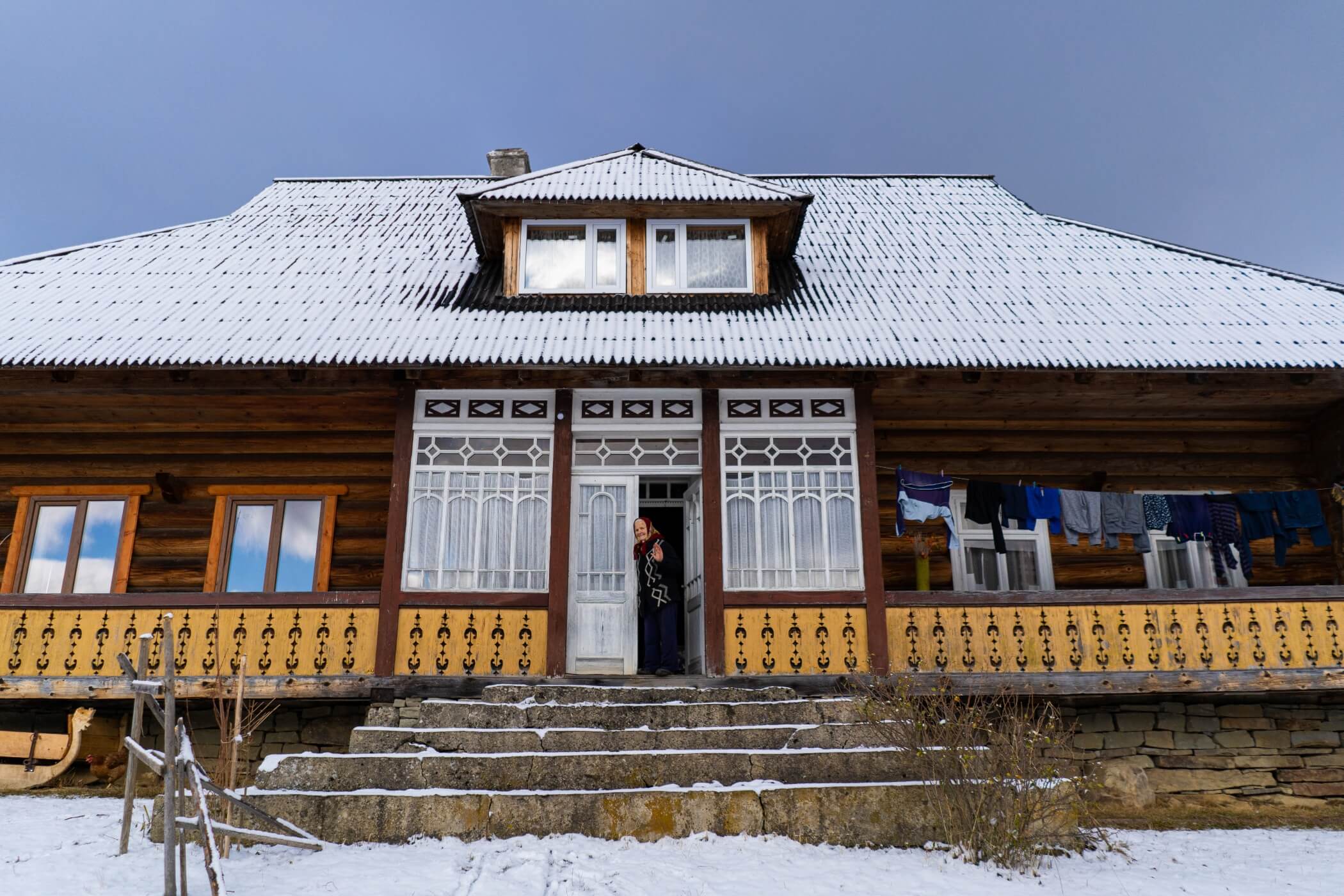
Village of Dzembronia, Ivano-Frankivsk region.
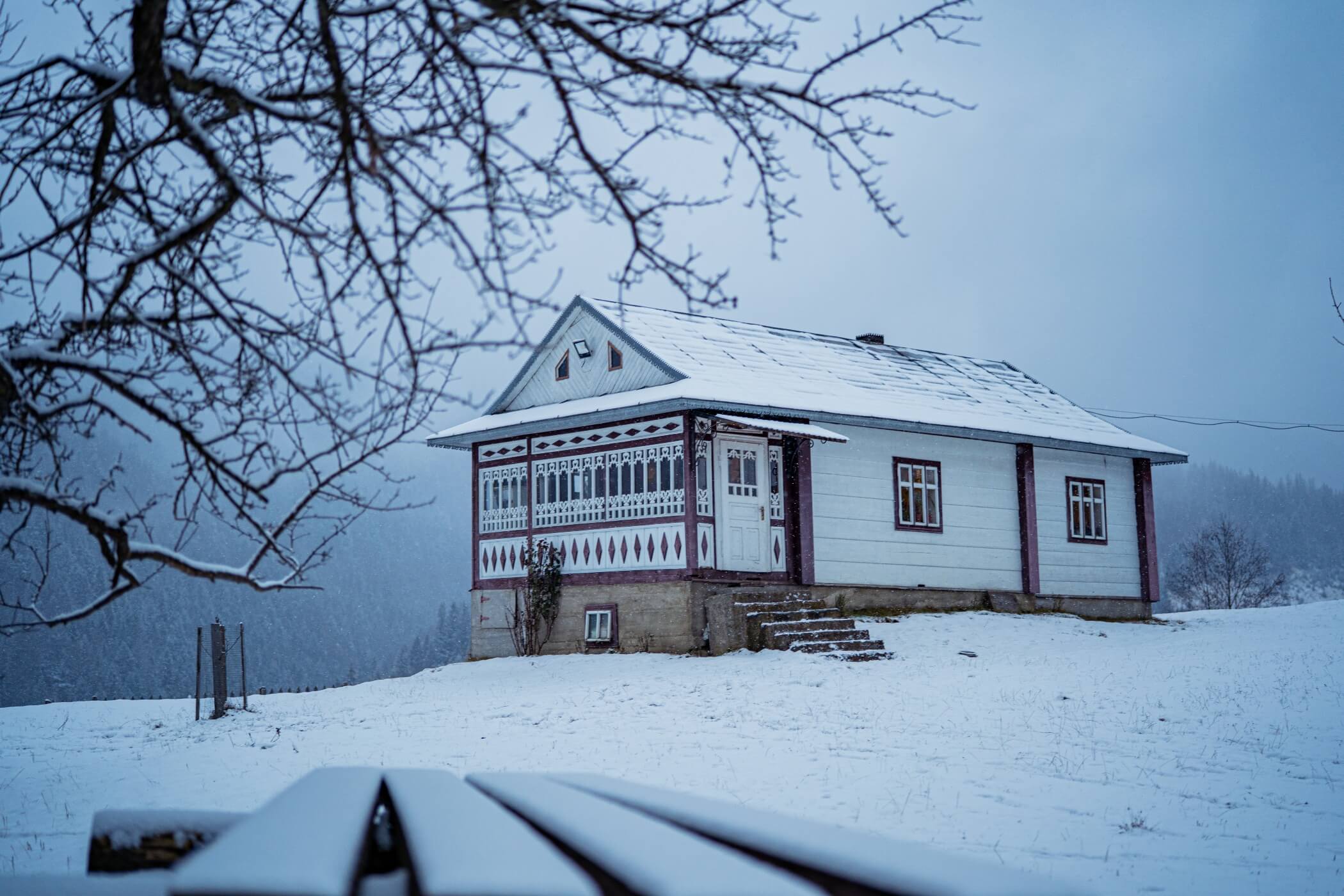
Village of Verkhnia Dzembronia, Ivano-Frankivsk region.
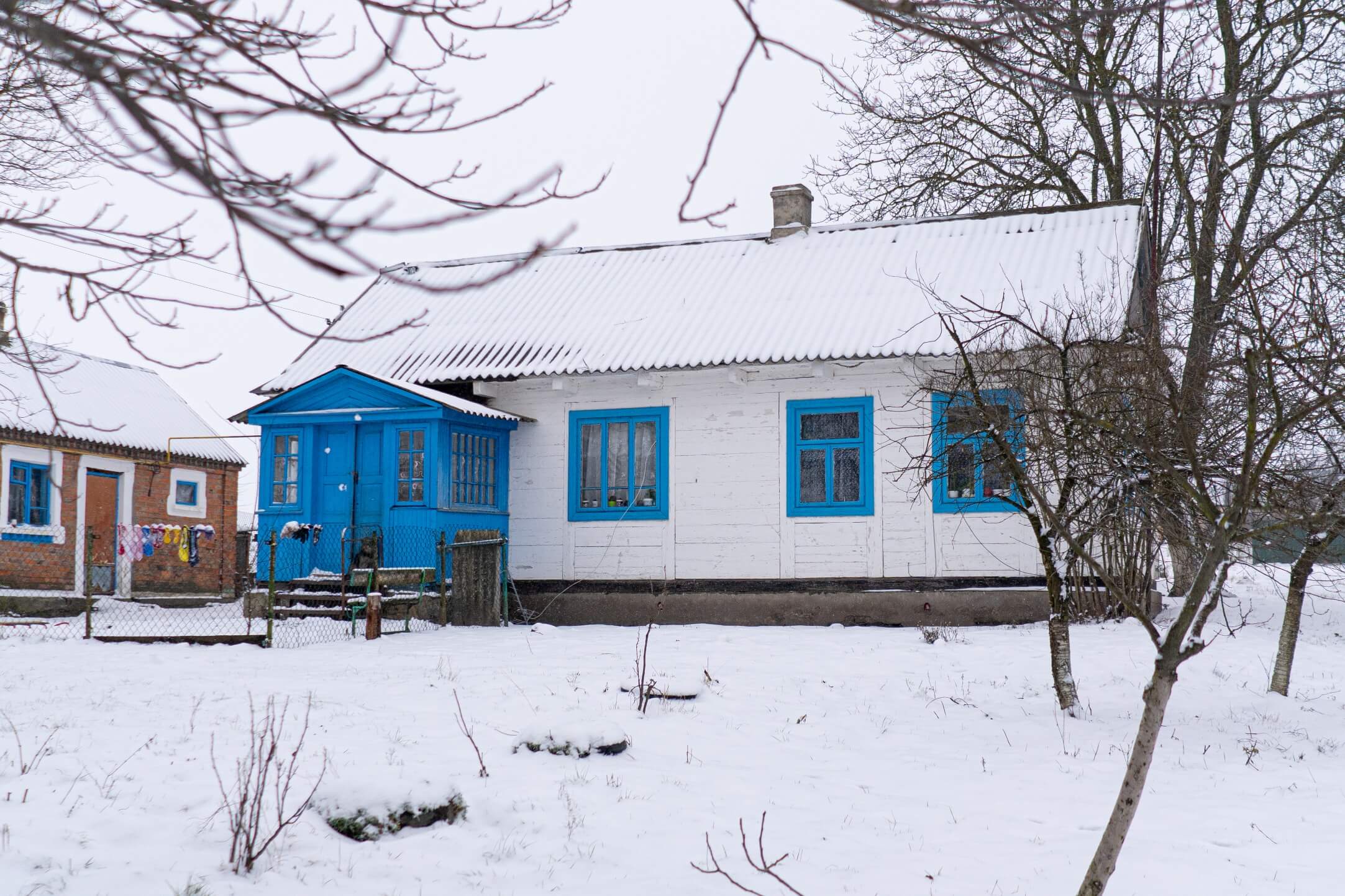
Village of Sukhodoly, Volyn region
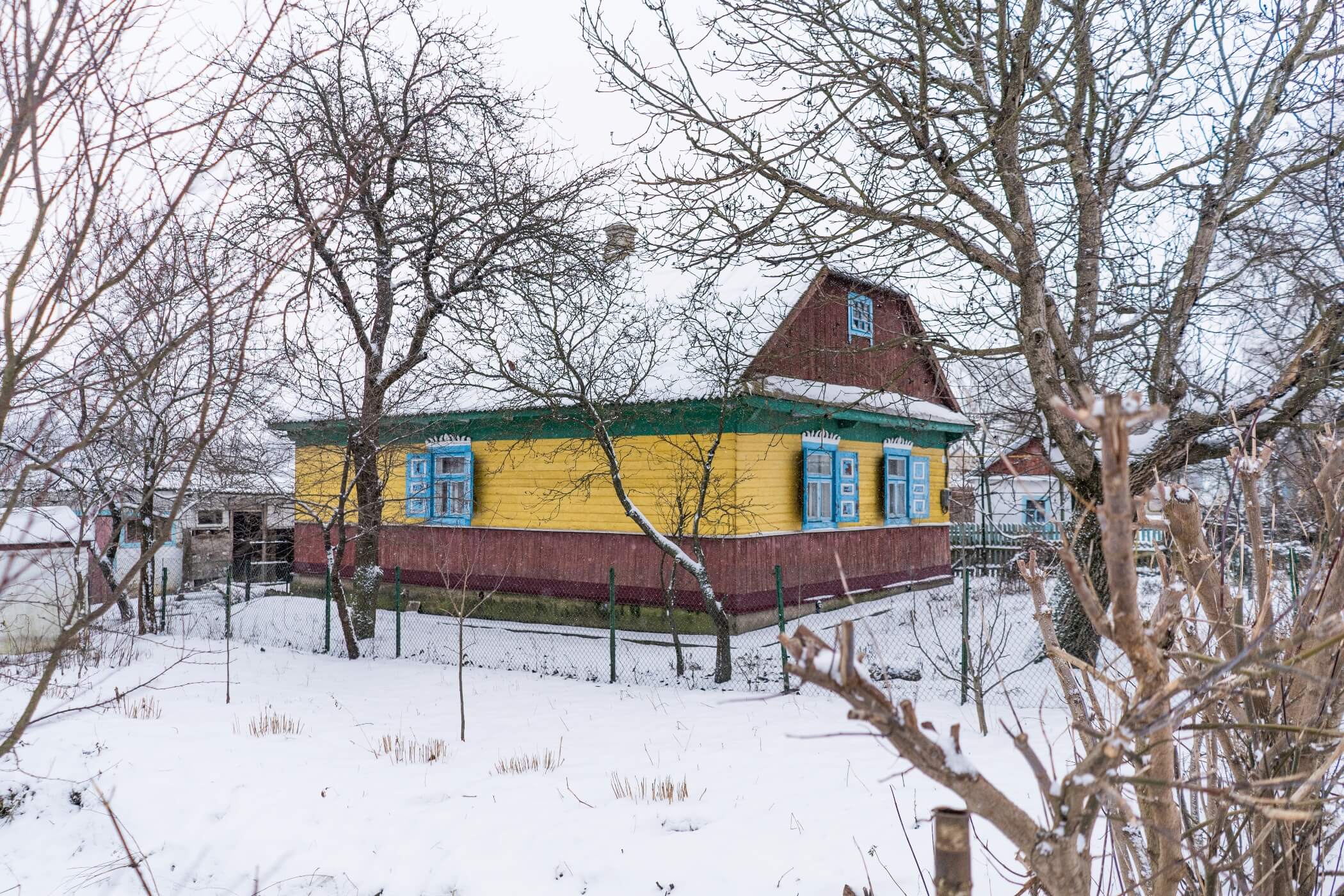
Village of Sukhodoly, Volyn region
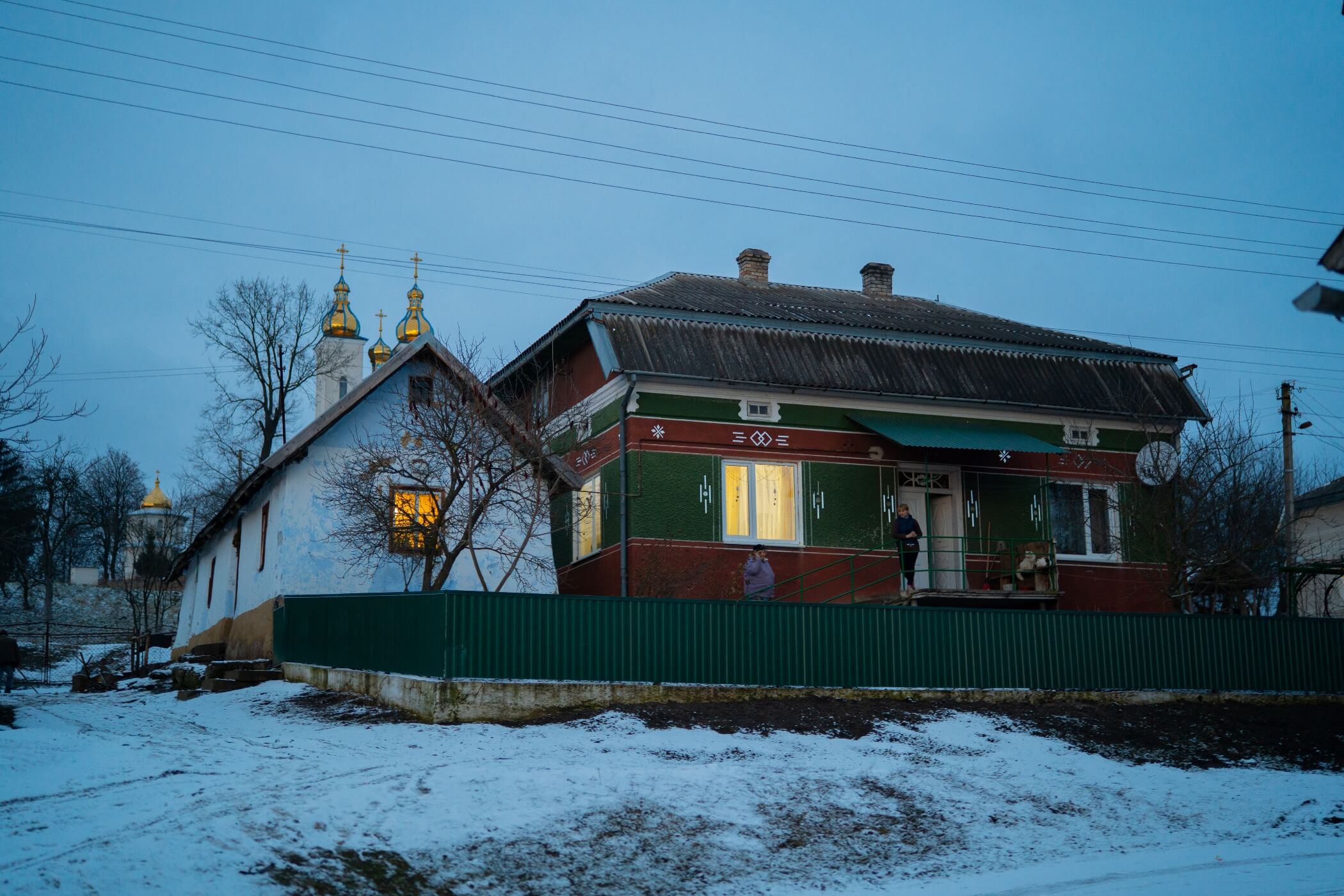
Village of Cherche, Ivano-Frankivsk region
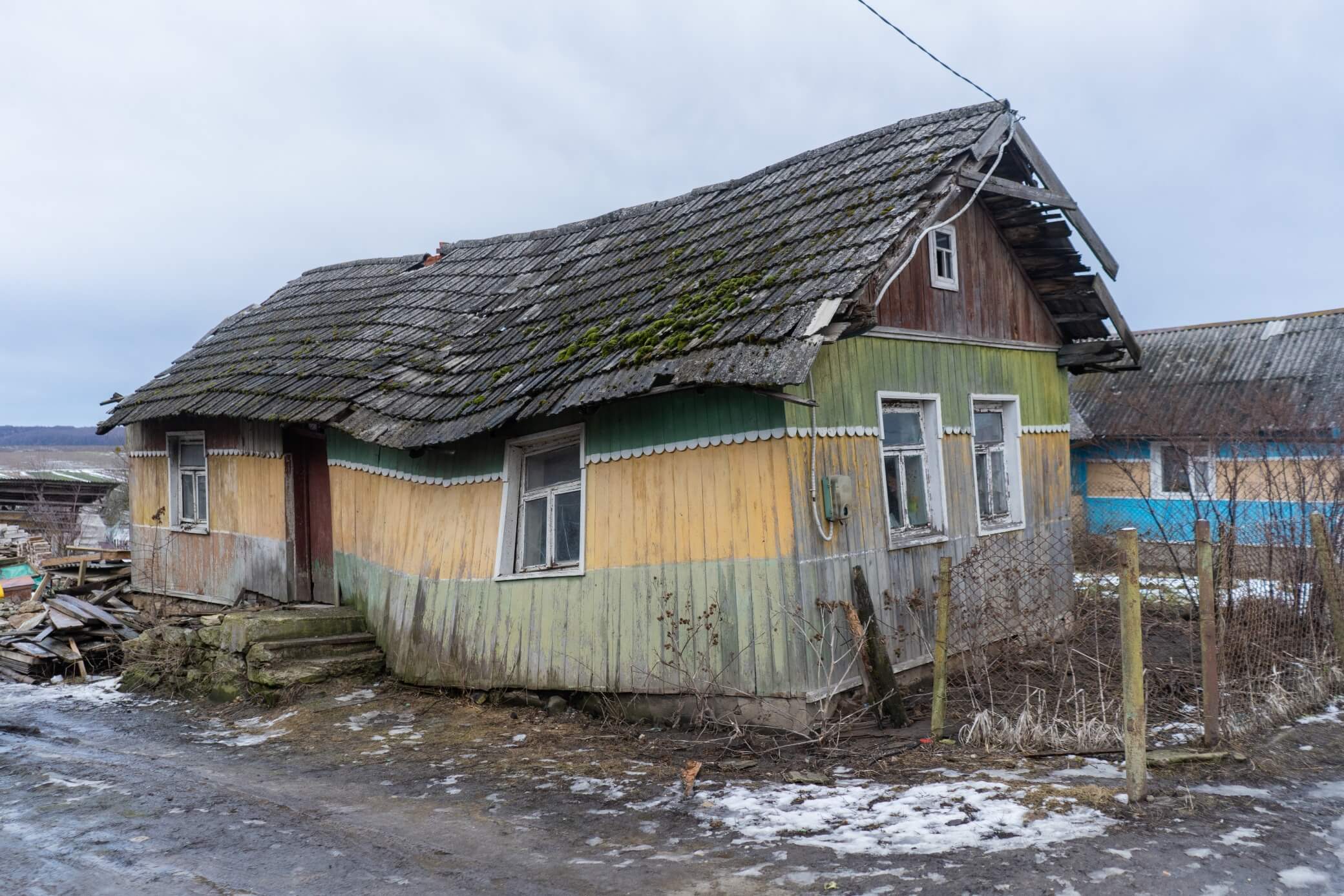
Village of Svirzh, Lviv region
We both have a background in cultural studies, so we have a good understanding of how a traditional house is organized. However, some elements put us in a deadlock: once we saw small crosses on the wall of a house in the Ivano-Frankivsk region. It turned out that they represent the number of years the homeowner has lived without a wife. In the same area, we discovered a house covered with aluminum panels. The homeowner brought them from the Russian city of Bratsk in the Irkutsk region back in Soviet times, and he is very proud of how his dwelling looks now.
The crosses on the wall represent the number of years the homeowner has lived without a wife.
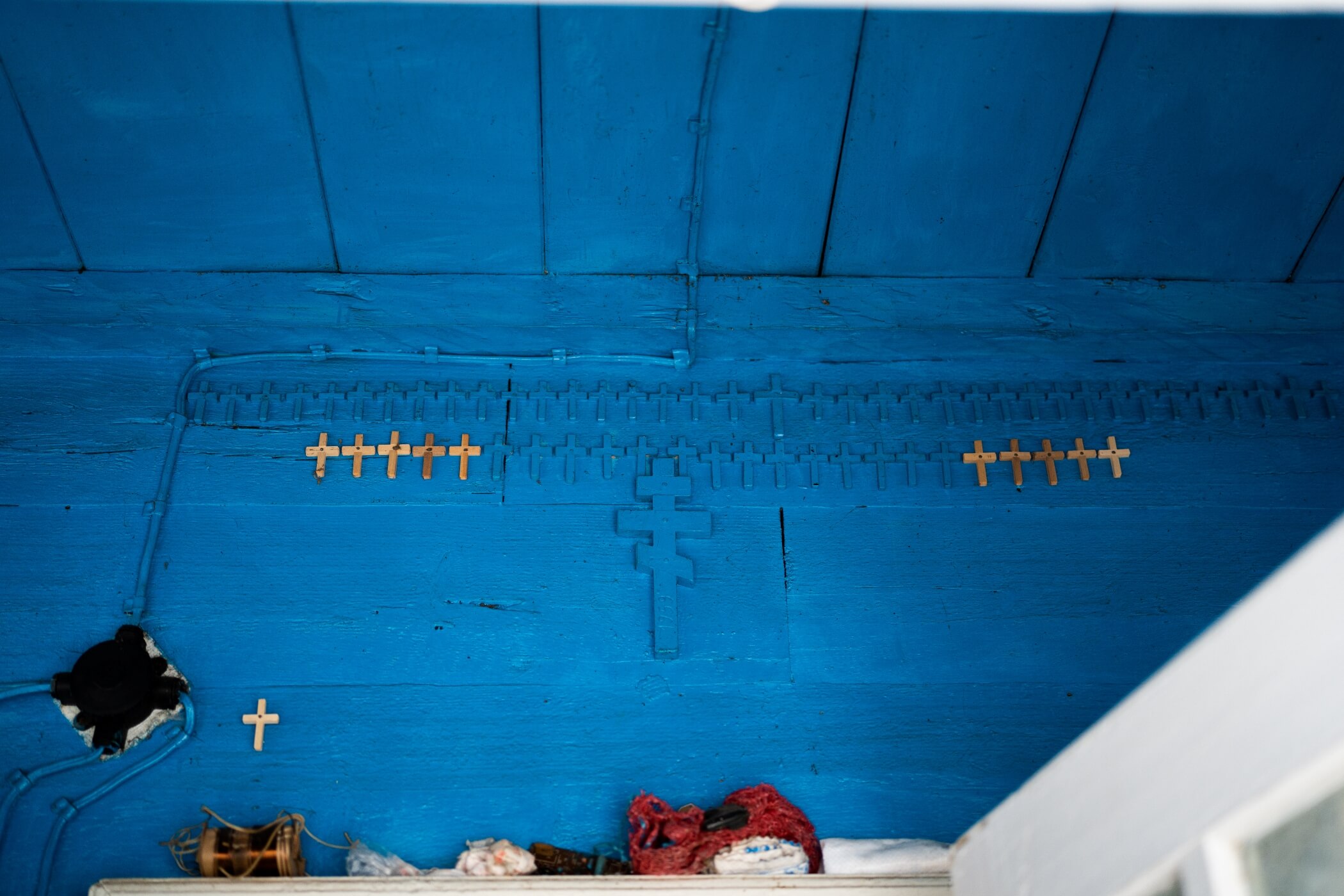
Village of Kosmach, Ivano-Frankivsk region
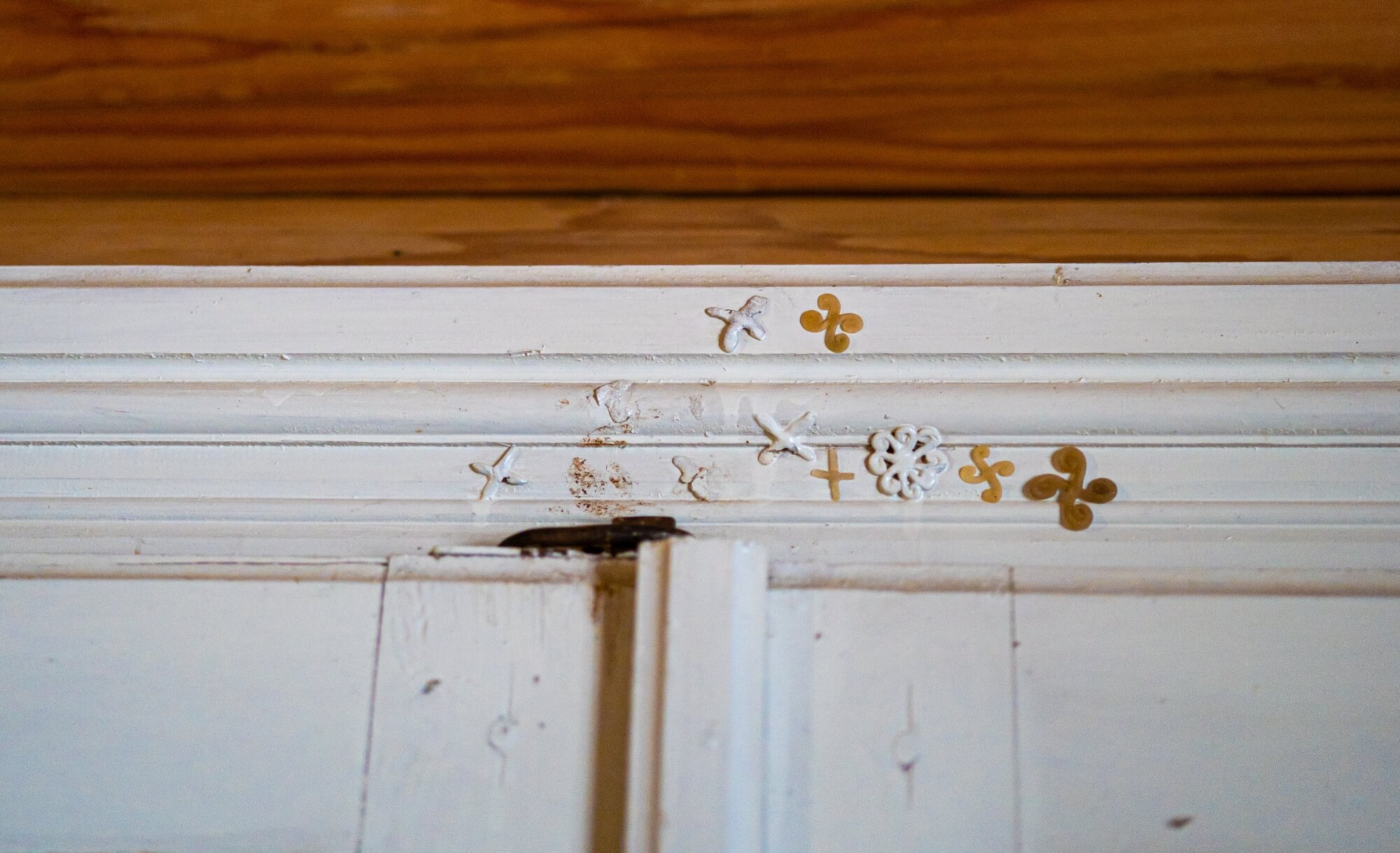
Village of Dzembronia, Ivano-Frankivsk region
Houses in different regions, of course, vary. For example, the houses in the Chernihiv region and Volyn region, although located in the north, are completely different. There are more mud houses in the Sloboda Ukraine because there wasn’t as much wood available as in the Carpathian region. Bukovyna has many palaces, and sometimes the villages resemble real kingdoms. People in western Ukraine, who often travel abroad, are accustomed to painting their walls in peach or light green color because they consider it more modern and “European” than wooden structures.
Bukovyna has many palaces, and sometimes the villages resemble real kingdoms.
In the city of Kreminna, ordinary brick houses are most commonly seen, but the window frames here are painted in a vibrant green color, giving entire streets a green appearance. However, many members of our Facebook group did not appreciate this choice, highlighting the differences in tastes among residents of different regions.
We finance our expeditions ourselves, and honestly, we haven’t even been actively seeking a publisher for our future book. In 2021, we plan to travel across Ukraine from north to south, from east to west, and we will be sharing the most interesting experiences on the project’s Facebook page.
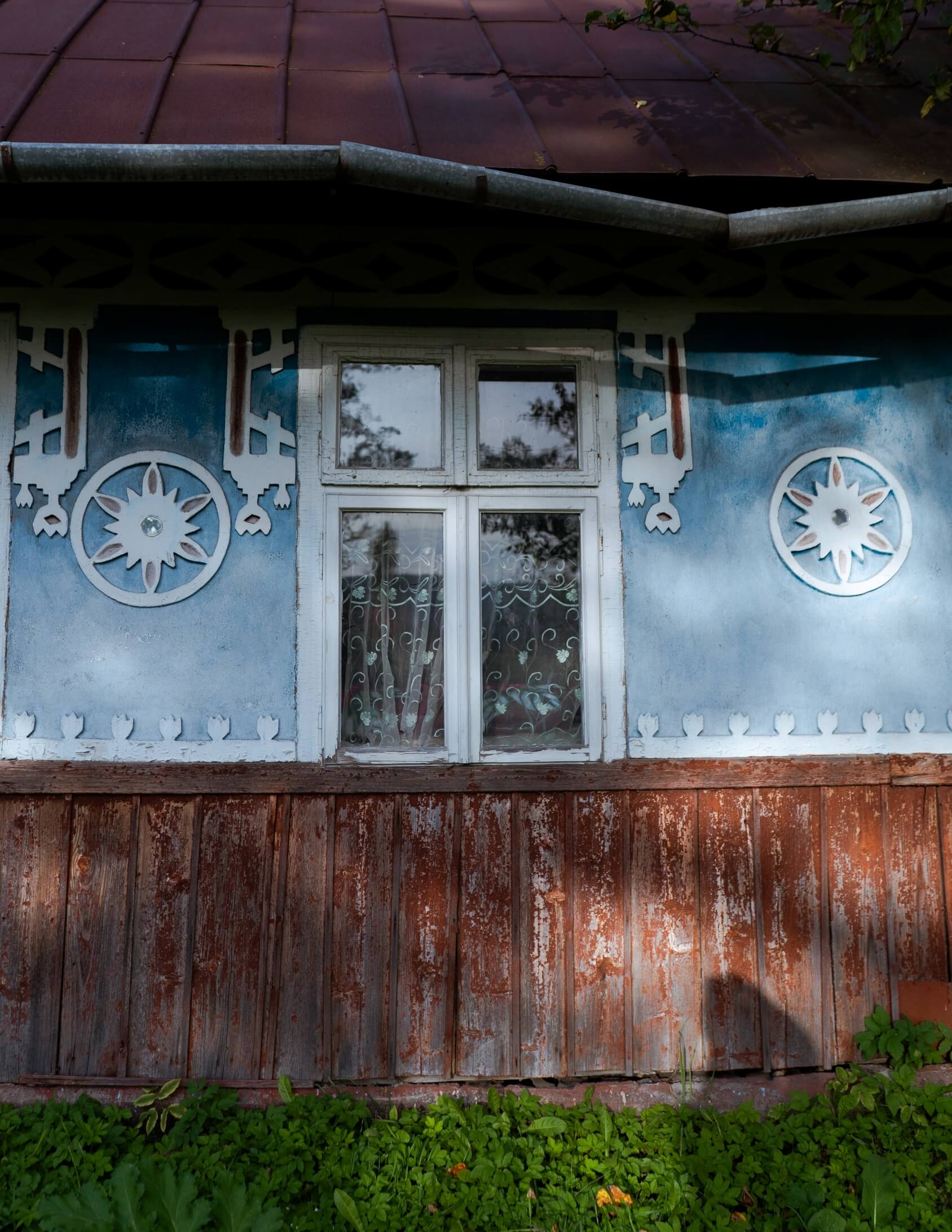
Village of Chereshenka, Chernivtsi Oblast
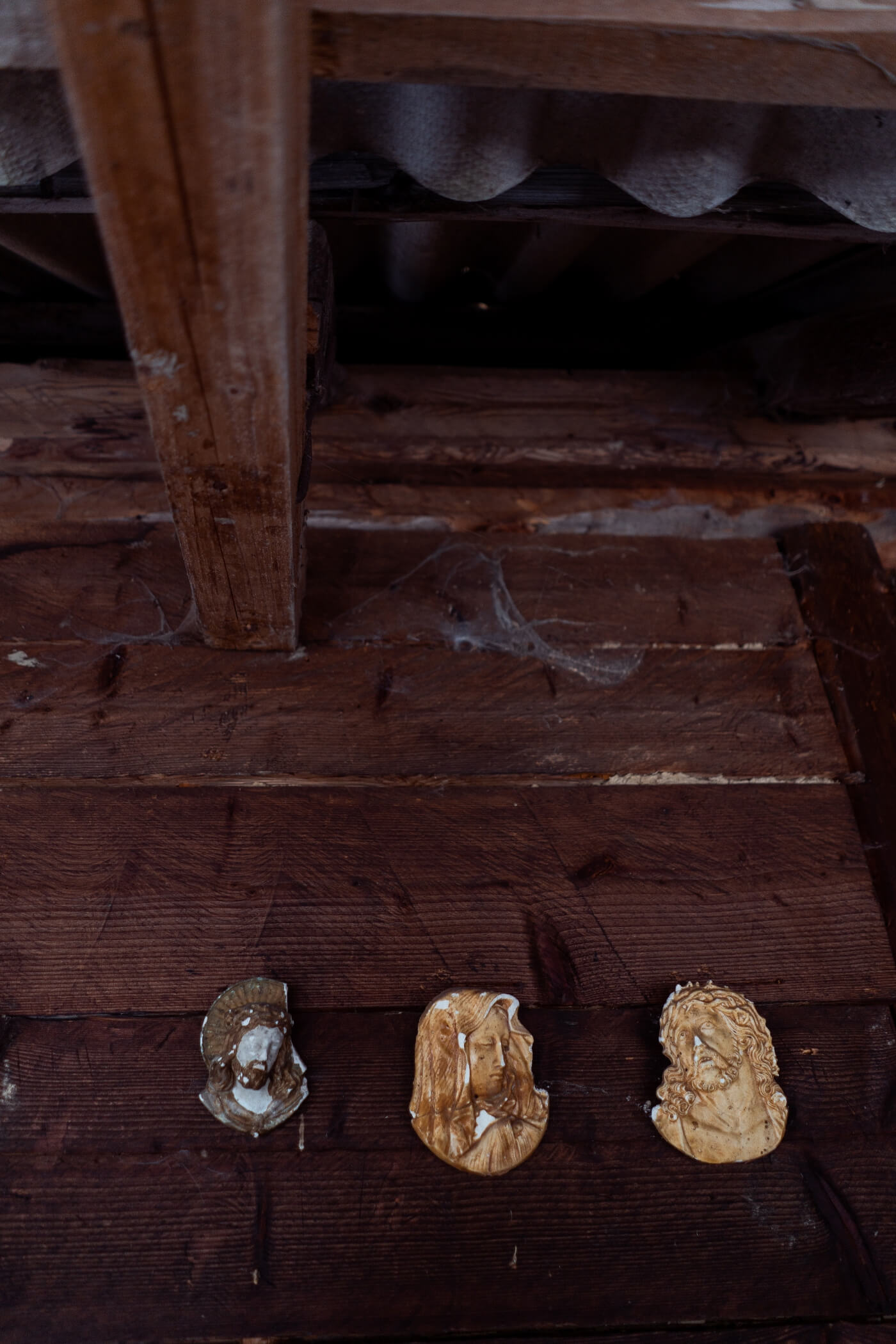
Abandoned house in the village of Kosmach, Ivano-Frankivsk Oblast
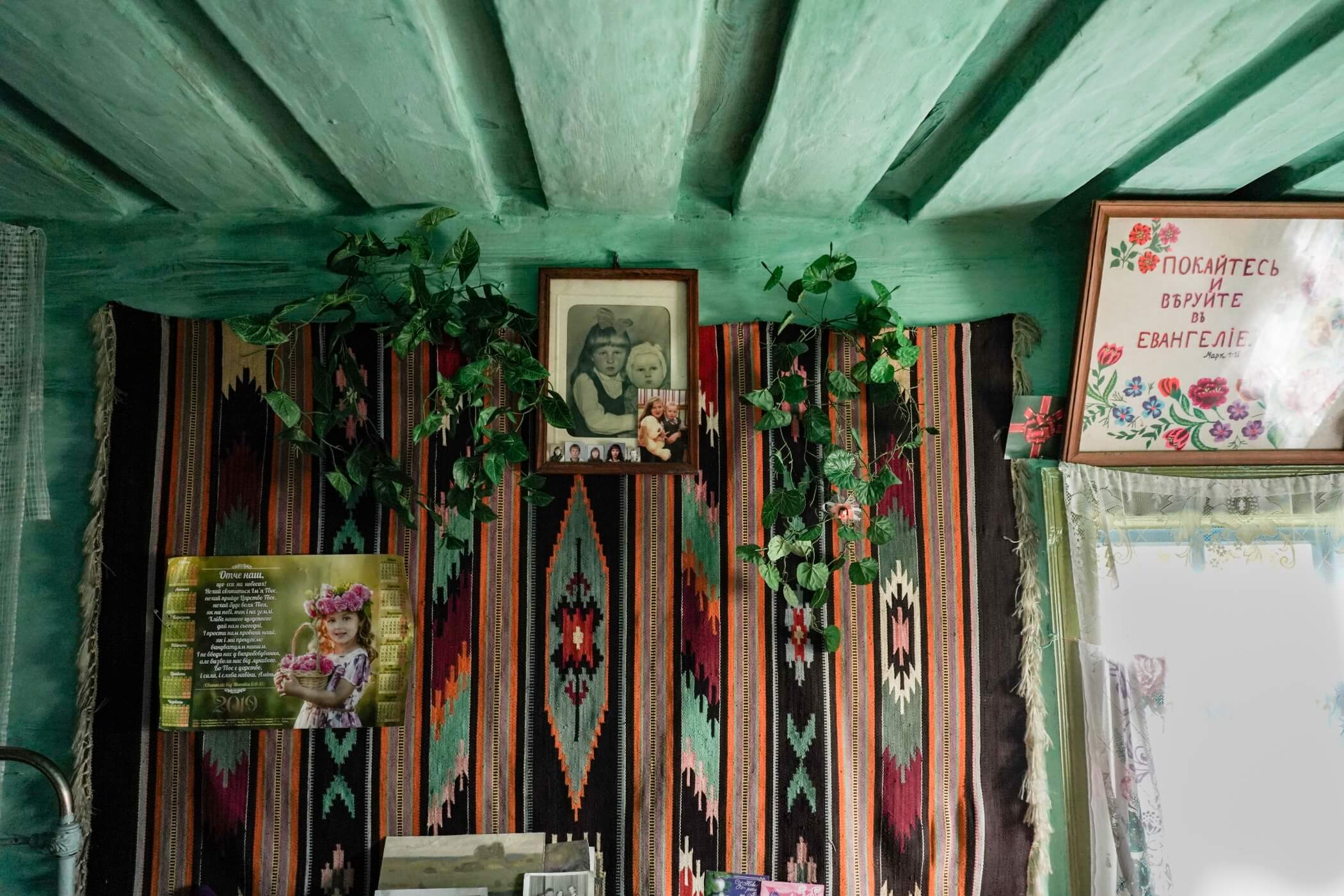
Village of Svalovychi, Volyn Oblast
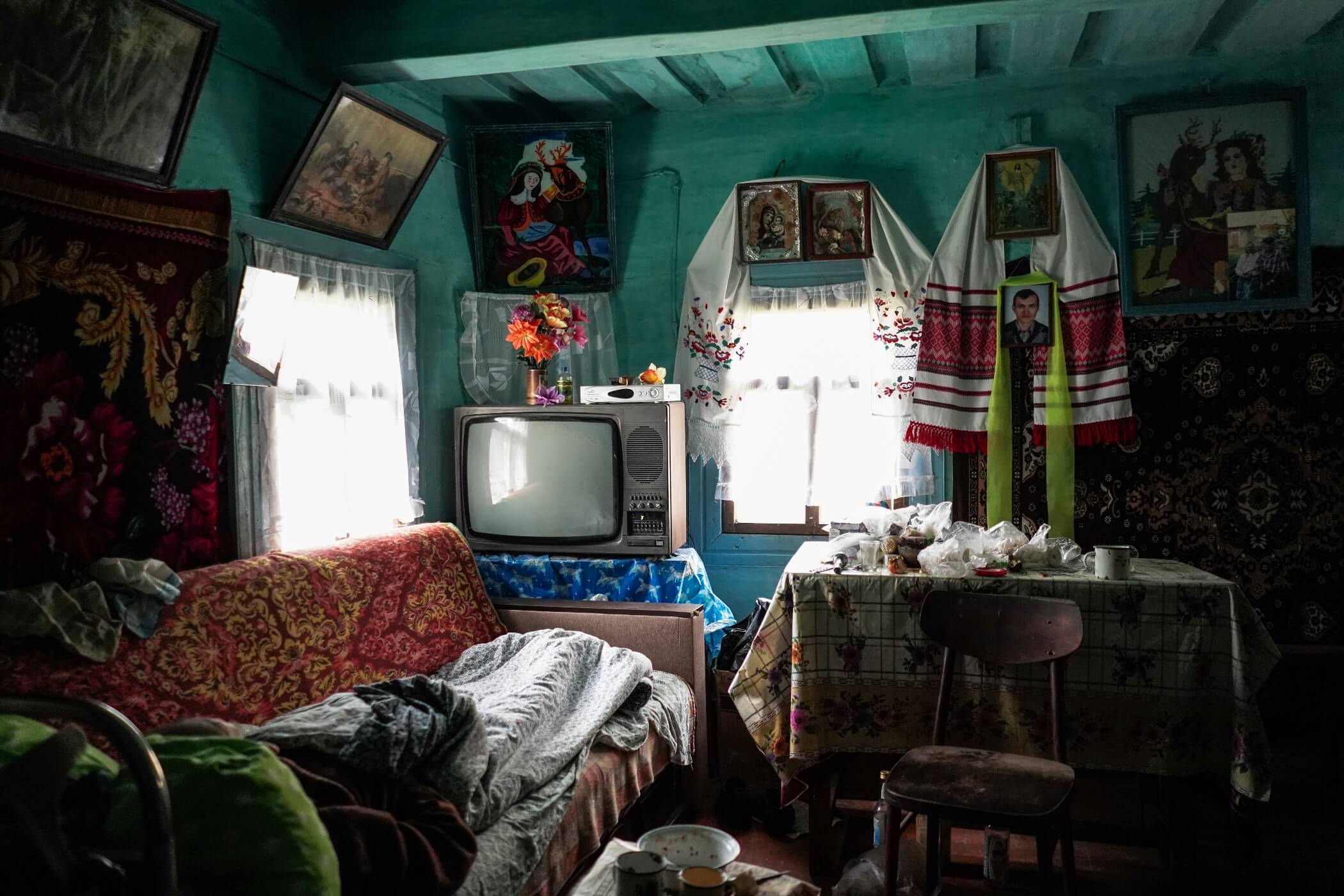
Village of Svalovychi, Volyn Oblast
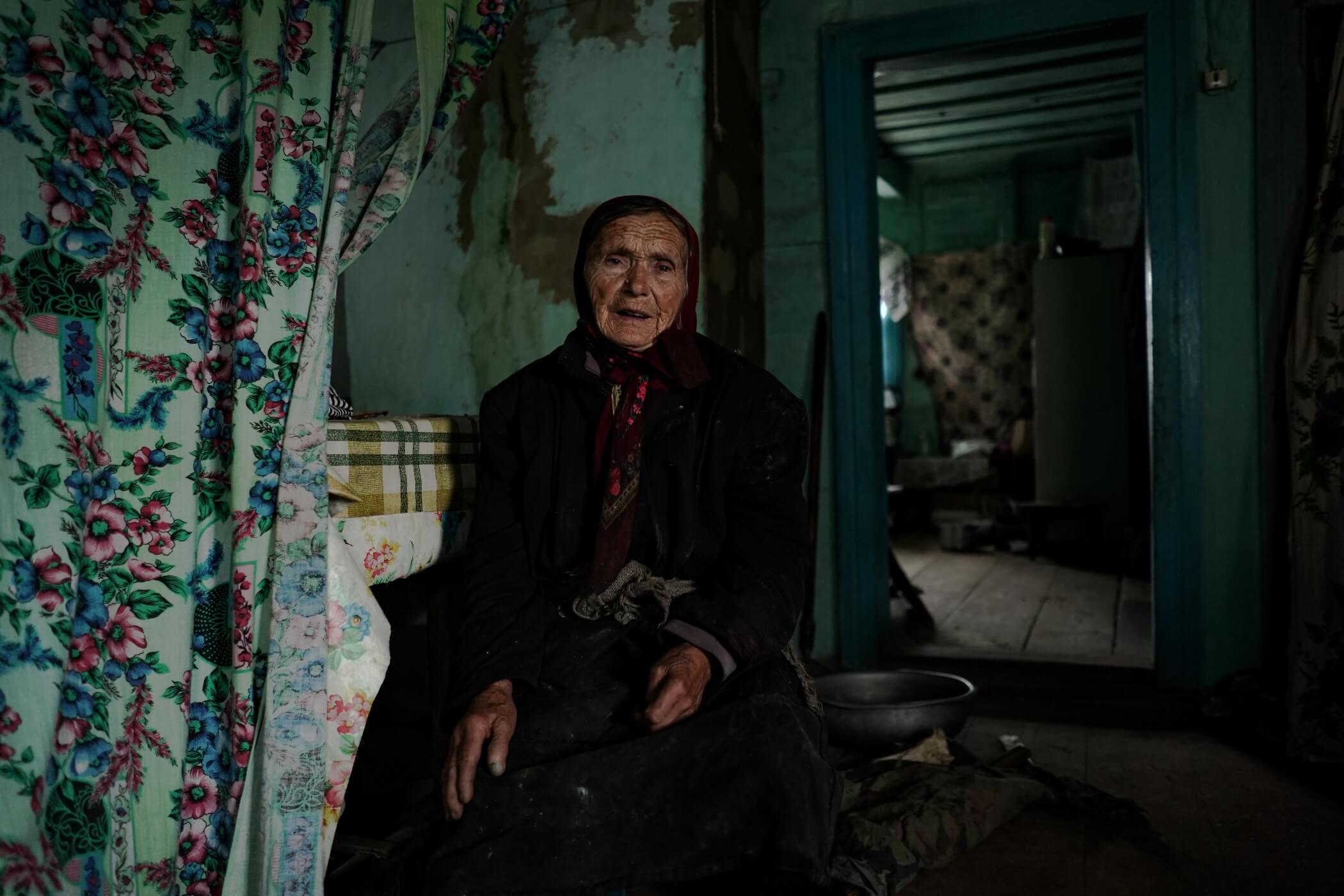
Village of Svalovychi, Volyn Oblast
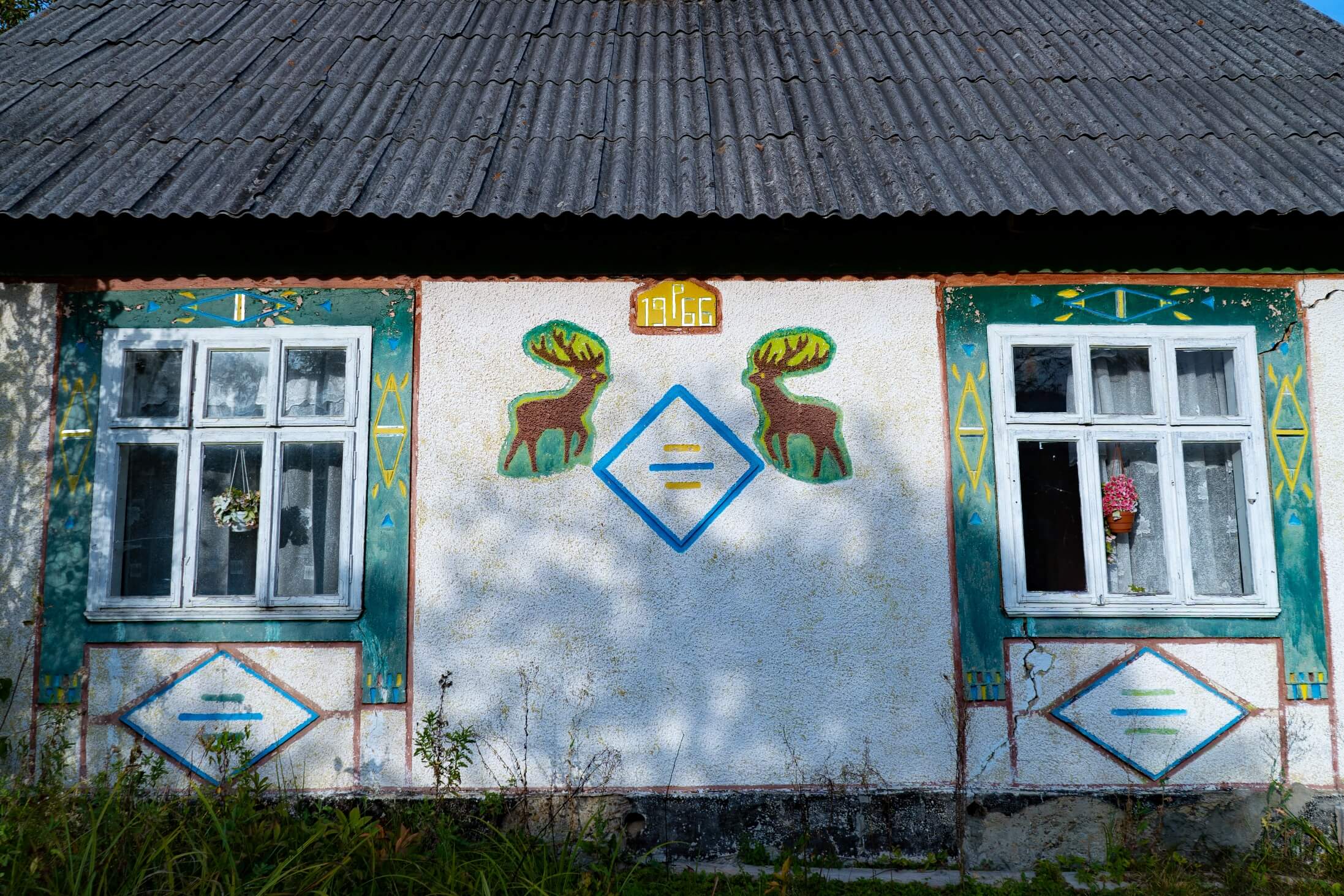
Village of Chereshenka, Chernivtsi Oblast
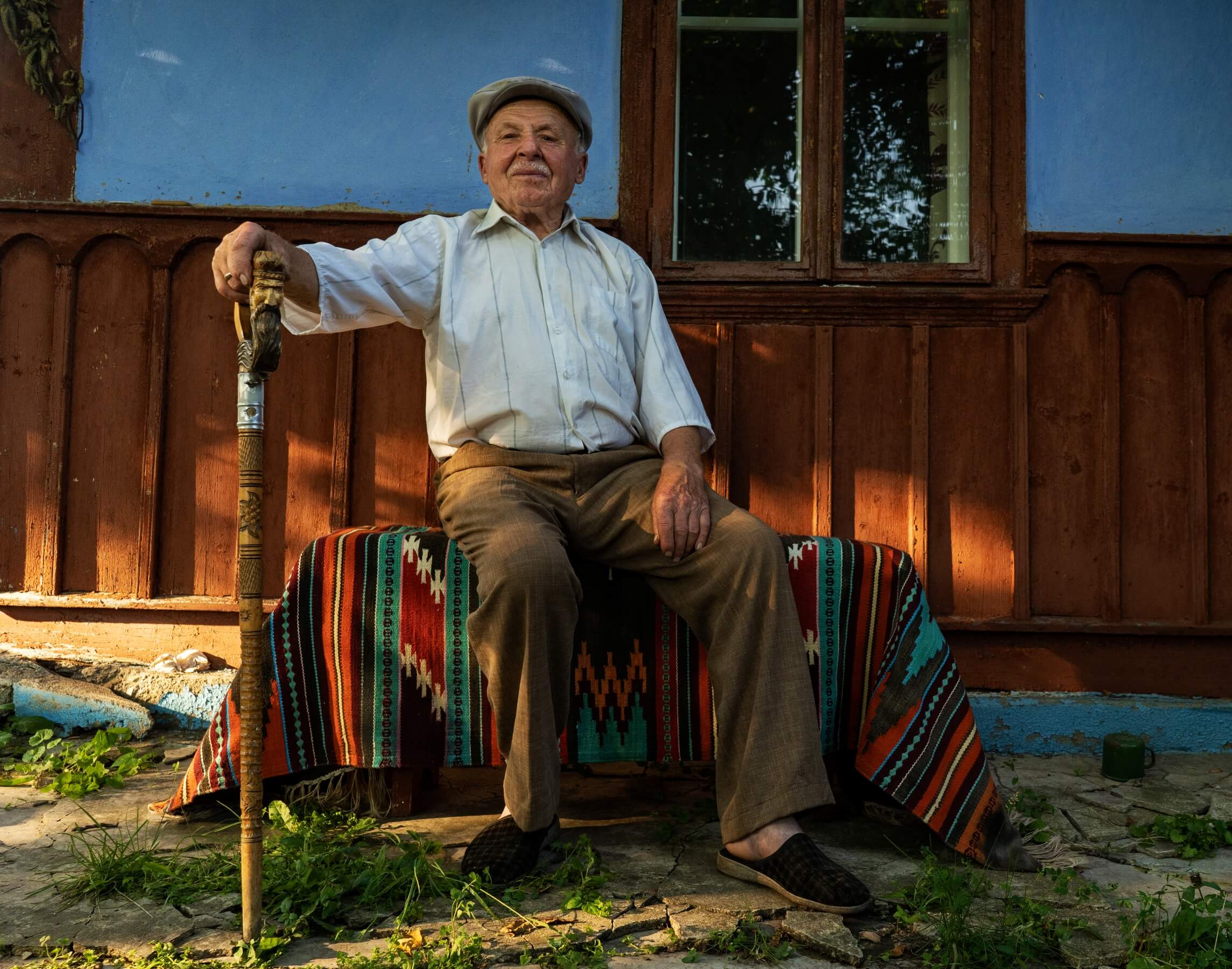
Village of Velyka Kamyanka, Ivano-Frankivsk Oblast
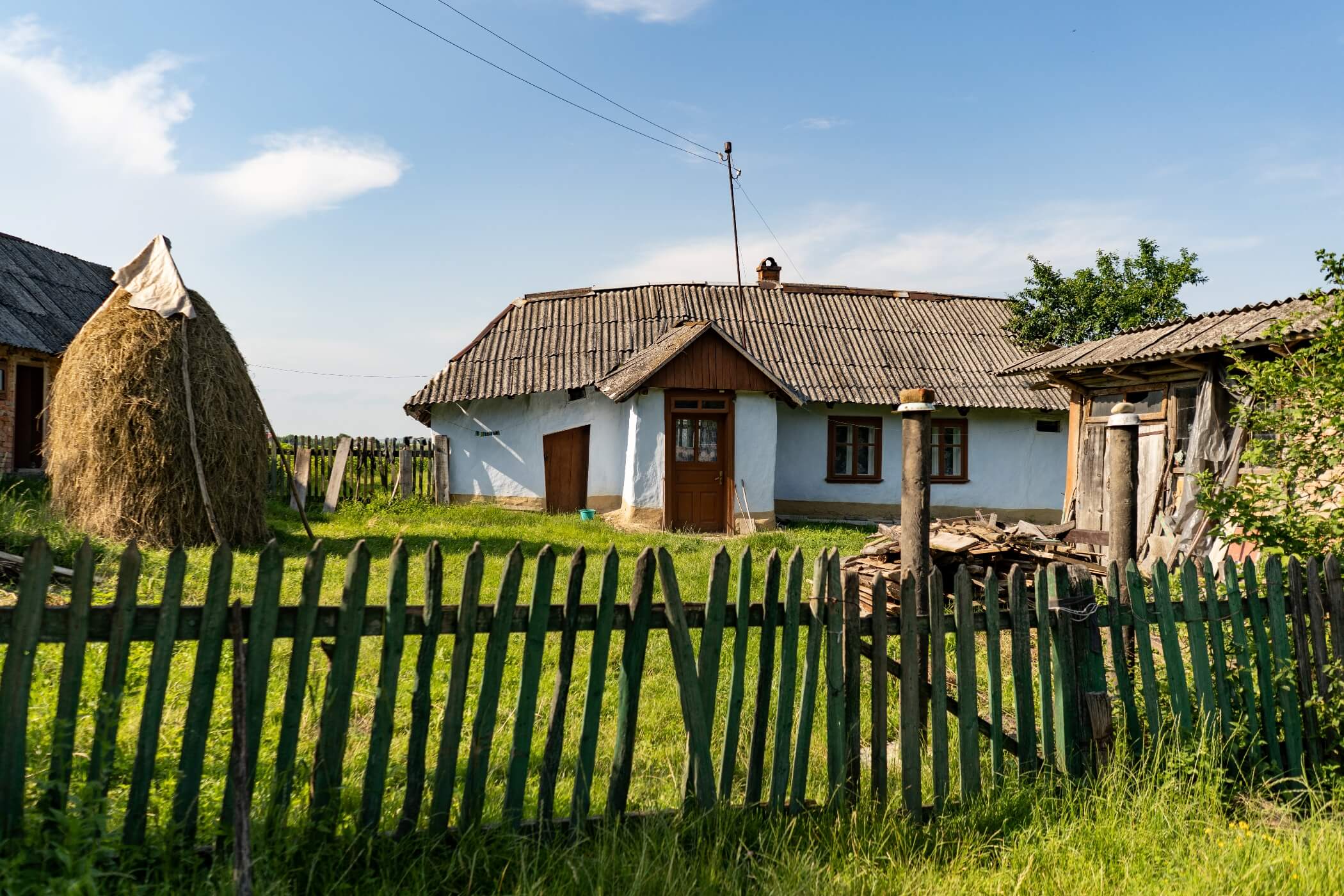
Village of Velyka Kamyanka, Ivano-Frankivsk Oblast
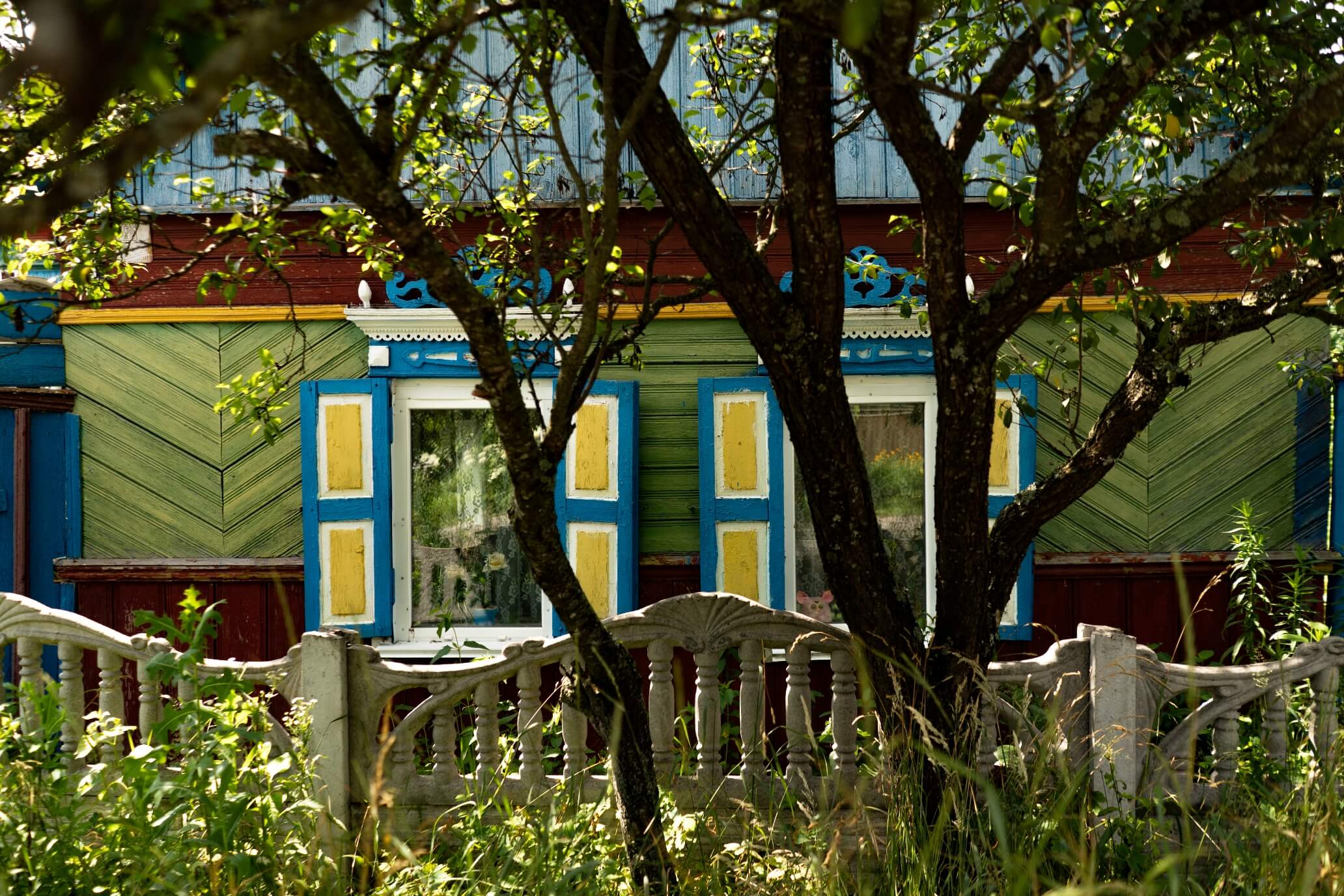
Village of Oleshnia, Chernihiv Oblast
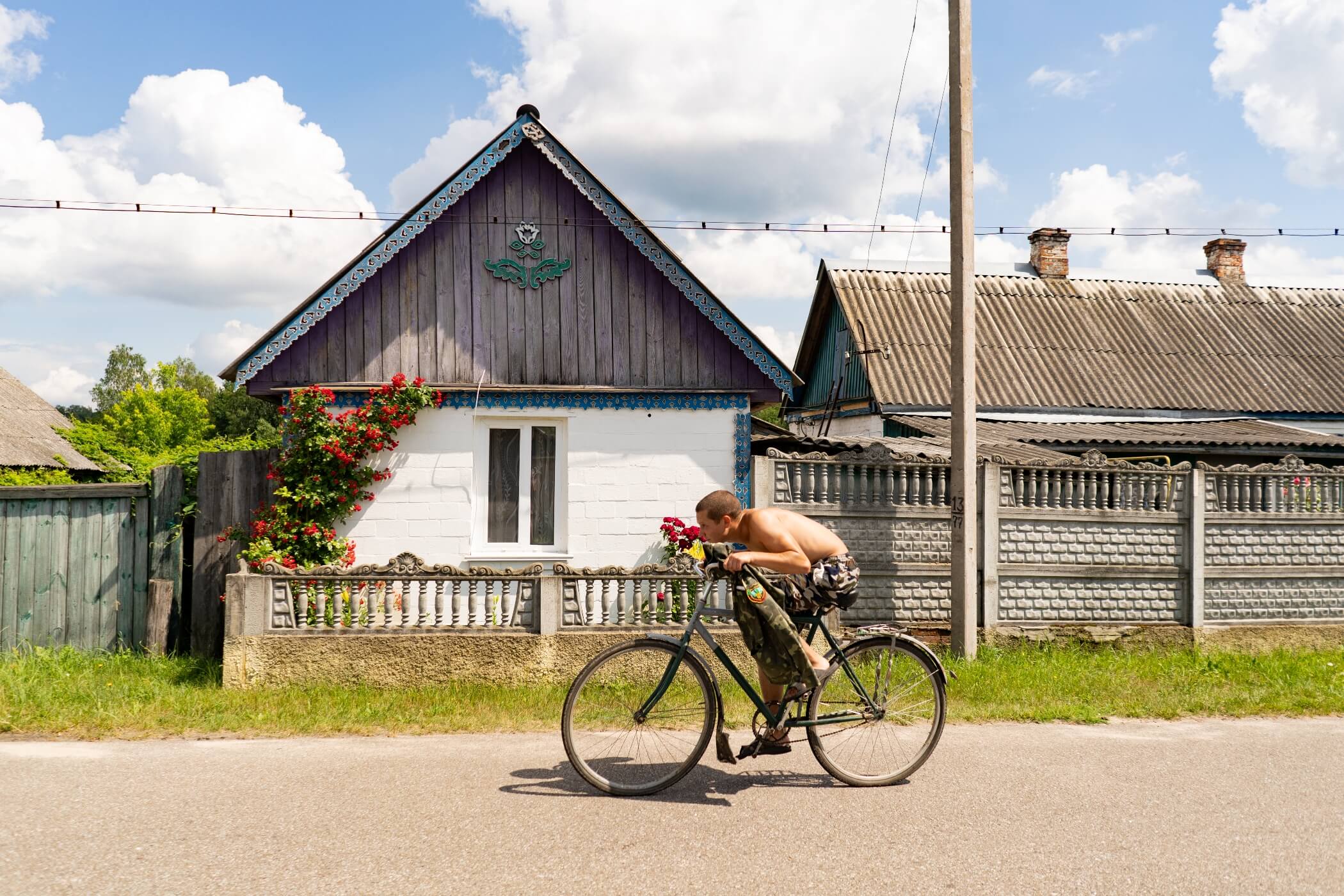
Village of Oleshnia, Chernihiv Oblast
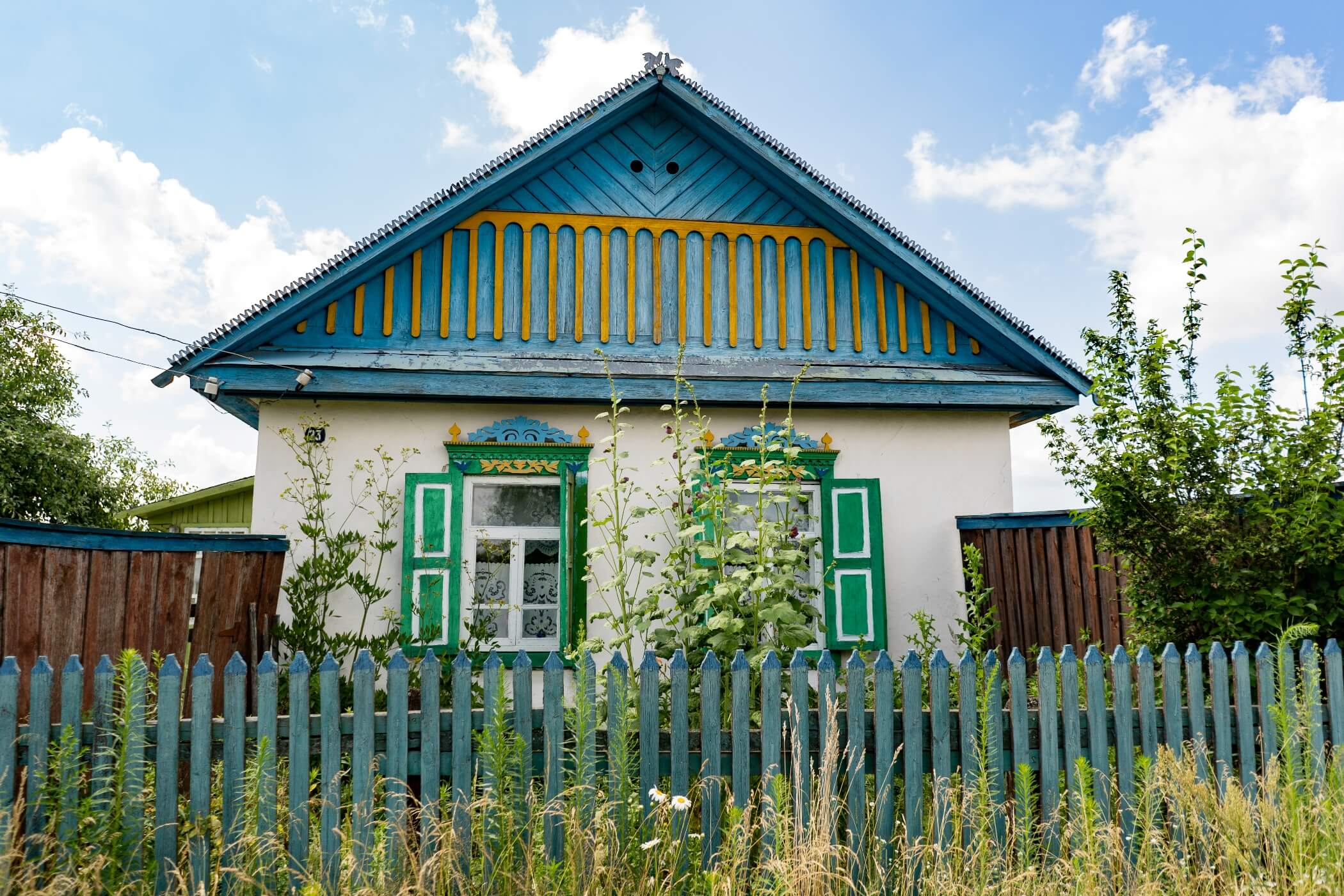
Village of Oleshnia, Chernihiv Oblast
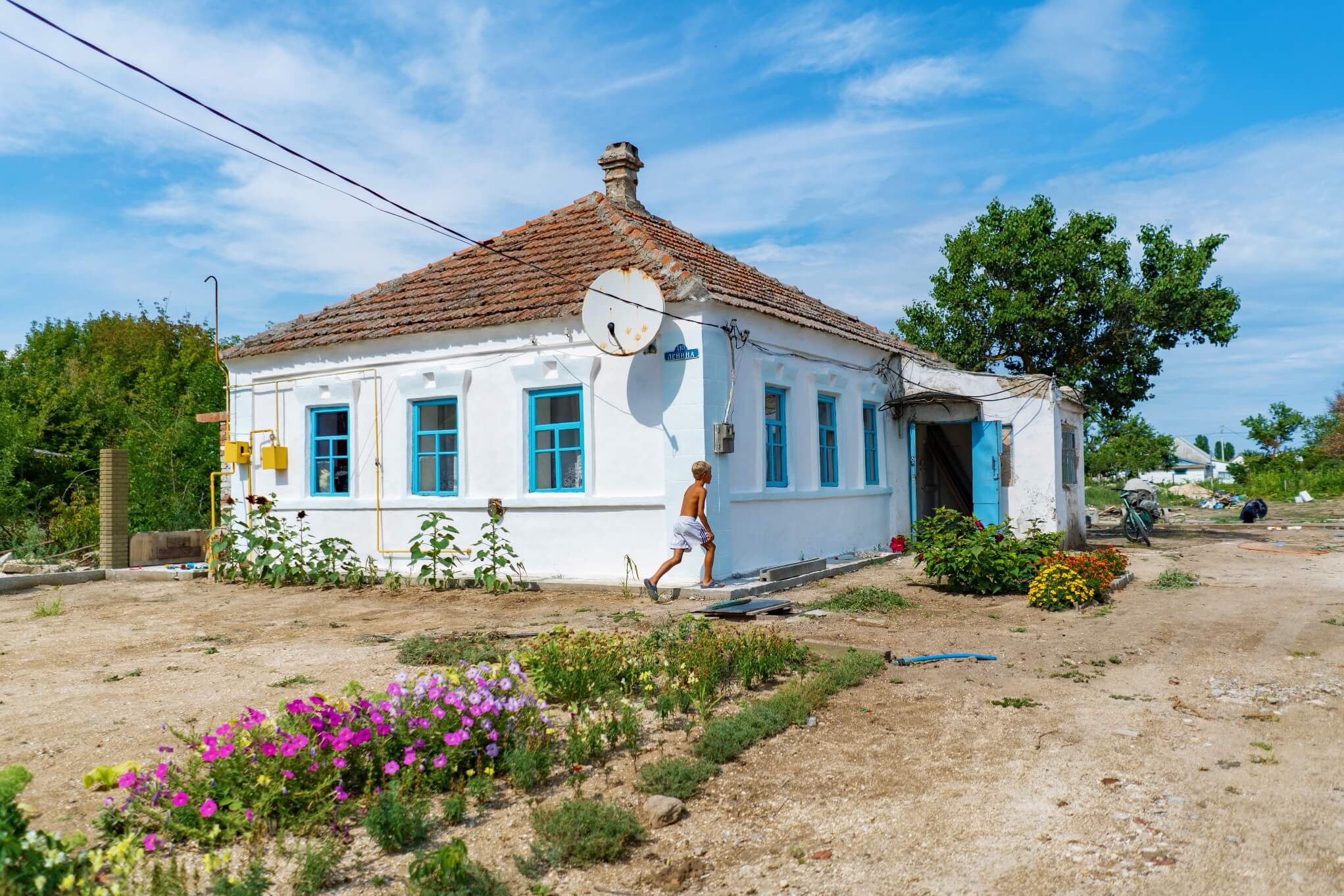
Village of Strilkove, Arabat Spit
New and best




